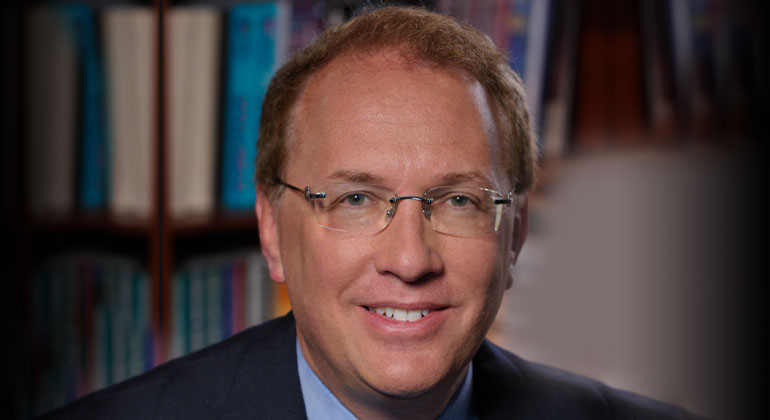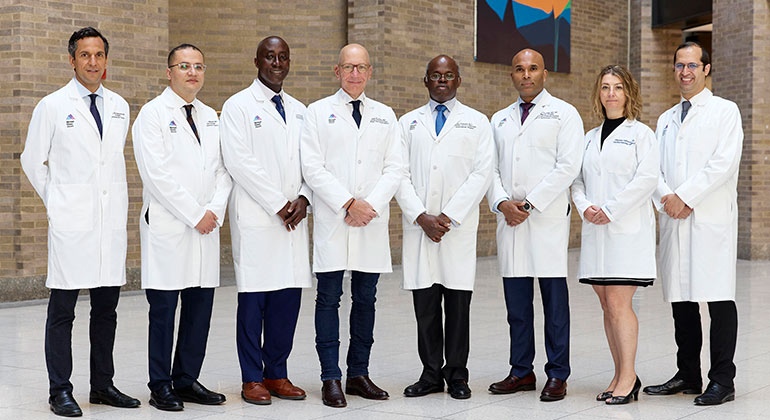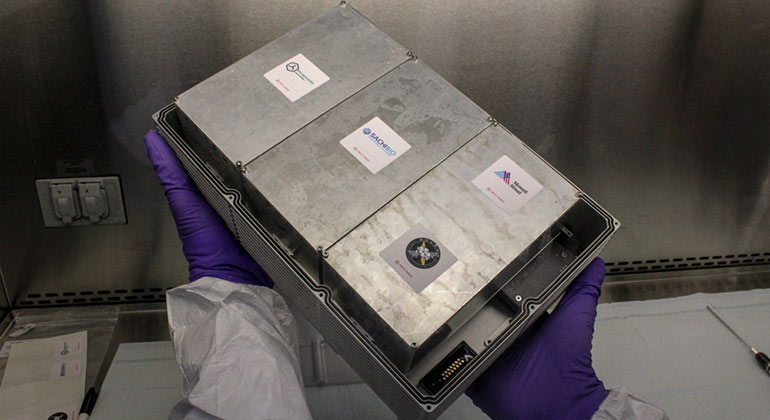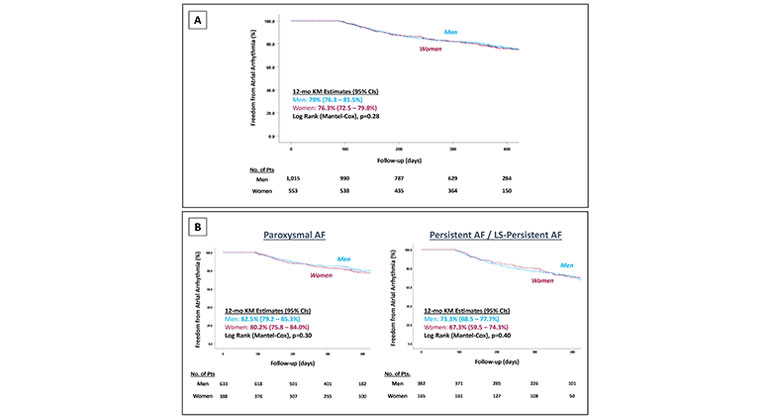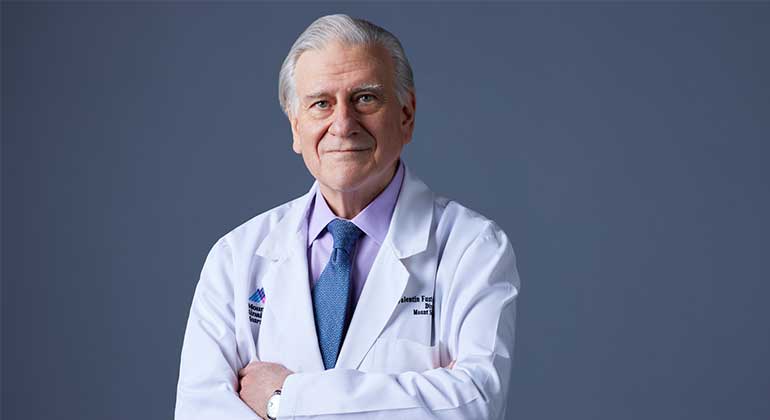American College of Cardiology 46th New York Cardiovascular Symposium December 13-15 Led by Dr. Valentin Fuster
As one of the most prestigious cardiology events in the world, it will review and highlight latest advances in cardiology in 2013 and the next big things in 2014.
More than 2,000 experts in the field of cardiology will join together at this year's three-day American College of Cardiology 46th New York Cardiovascular Symposium from December 13-15 in New York City. The event, which is one of the most prestigious cardiology events in the world, will review and highlight the latest advances in cardiology for 2013 and the next big things to expect in cardiology in 2014.
The annual, highly anticipated New York Cardiovascular Symposium is hosted and directed by Valentin Fuster, MD, PHD, MACC, a global leader in cardiovascular medicine for the last three decades who serves as Director of Mount Sinai Heart and Physician-in-Chief of The Mount Sinai Hospital. Dr. Fuster, the next Editor-in-Chief of the Journal of the American College of Cardiology (JACC) in 2014, has directed the Symposium for the last 20 years.
The event, hosted at the New York Hilton-Midtown, will include presentations by Dr. Fuster and 40 other leading cardiac experts from premier cardiac institutions across the country. They will discuss and debate the latest timely and major questions, topics, challenges, and breakthrough advances in the field of cardiovascular medicine today and what lies ahead for tomorrow. The large audience will include cardiologists, cardiac interventionalists, electrophysiologists, cardiac surgeons, nurses, and other healthcare professionals.
The three-day Symposium led by Dr. Fuster will be kicked-off the morning of Friday, December 13 at 7:15am by Shalom “Shal” Jacobovitz, Chief Executive Officer, American College of Cardiology; John G. Harold, MD, MACC, President, American College of Cardiology; and Smadar Kort, MD, FACC, Governor, American College of Cardiology, Downstate New York.
This year's agenda for the New York Cardiovascular Symposium will focus on the evolution of cardiology in 2013 and what to expect in 2014. Key presentation highlights include:
Friday, Dec. 13
NEW DISCOVERIES IN ATHERO-THROMBOGENESIS AND TECHNOLOGIES (7:30am-9:20am)
Chaired by Dr. Christopher P. Cannon, Brigham and Women's Hospital and Harvard Medical School
- Predictive value of the subclinical atherosclerosis burden: Future use of carotid 3D ultrasound plus coronary calcium score (Dr. Valentin Fuster, Mount Sinai Hospital)
- Predictive value of proteomics and genomics in coronary artery disease and evolving pharmacological options (Dr. Patrick T. O'Gara, Brigham and Women's Hospital and Harvard Medical School)
ACUTE CORONARY SYNDROMES (9:40am-11:50am)
Chaired by Dr. Lars Wallentin, Uppsala Clinical Research Center
- The science of stents in acute coronary syndrome, based on the 2012-2013 data
- The view of the interventionalist (Dr. Samin Sharma, Mount Sinai Hospital)
- The view of the pathologist (Dr. Renu Virmani, CVPath Institute, Inc.)
TRENDS AND CHALLENGES OF PREVENTION (3:00pm-5:15pm)
Chaired by Dr. Sidney C. Smith, Jr., University of North Carolina School of Medicine
- New guidelines on lipids: Are PCsK 9 inhibitors poised for breakthrough? (Dr. Sidney C. Smith, Jr.)
- New guidelines on hypertension: New approaches from population salt reduction to personalized treatment targets (Dr. Donna Arnett, University of Alabama Birmingham School of Public Health)
- Renal sympathetic denervation: Is this a real long term breakthrough? (Dr. Mark W. Burket, University of Toledo Medical Center)
- Diabetes and contemporary targets: Are we ready for bariatric surgery? (Dr. David M. Nathan, Massachusetts General Hospital and Harvard Medical School
- Promoting cardiovascular health challenges: Pre-school children, the adult community, the elderly, and the polypill (Dr. Valentin Fuster, Mount Sinai Hospital)
Saturday, Dec. 14
SYSTOLIC HEART FAILURE AND BASIS FOR MANAGEMENT (7:00am-9:40am)
Chaired by Dr. Clyde W. Yancy, Northwestern University Feinberg School of Medicine
- Diagnostic and prognostic imaging using MR and CT for cardiomyopathies, other heart muscle related issues, and the management of heart failure (Dr. Henry R. Halperin, Johns Hopkins University School of Medicine)
- Rapid evolving alternative to heart transplants, LVADS for destination therapy to close the heart transplant gap (Dr. Donna M. Mancini, NewYork-Presbyterian Hospital/Columbia University Medical Center)
RHYTHM DISORDERS, CONTEMPORARY AND FUTURE TOPICS OF FOCUS (10:00am-12:15pm)
Chaired by Dr. Francis E. Marchlinski, Hospital of the University of Pennsylvania
- Arrhythmia disorders: latest devices, and therapies such as catheter ablation and left atrial appendage closure, improving quality of life and preventing strokes (Dr. Michael R. Gold, Medical University of South Carolina; Dr. Francis E. Marchlinski, Hospital of the University of Pennsylvania; Dr. Valentin Fuster and Dr. Vivek Reddy, The Mount Sinai Hospital)
MANAGEMENT OF AORTIC VALVE DISEASE (1:15pm-4:00pm)
Chaired by Dr. Robert O. Bonow, Northwestern University Feinberg School of Medicine
- Aortic stenosis challenges in evaluation and management, and interventional decision-making considering patient age and the use of prosthetic valves (Dr. Robert O. Bonow; Dr. Paul Stelzer, Dr. David H. Adams, and Dr. Samin Sharma of Mount Sinai Hospital)
- Debating future management of mitral regurgitation: Operate earlier (Dr. Robert O. Bonow), almost 100% should be repair (Dr. David H. Adams, Mount Sinai Hospital), and the future role of the cardiac interventionalist (Dr. Ted Feldman, Evanston Hospital)
Sunday, Dec. 15
YEAR IN REVIEW: HIGHLIGHTS OF PROGRESS IN 2013
Novelties on genetics, cell regeneration, and molecular signaling (7:30am-8:25am)
Chaired by Dr. Valentin Fuster, Mount Sinai Hospital
- New findings on the embryogenic development of the heart and implications for stem cell regeneration in adult myocardium (Dr. Miguel Torres, CNIC in Spain)
- New therapeutic findings on LV dysfunction and the viable myocardium: A therapeutic upgrade of metabolism by gene therapy (Dr. Roger Hajjar, Mount Sinai Hospital)
- New therapeutic findings on LV dysfunction to the scarred myocardium: A response to islet progenitor cells and paracrine factors (Dr. Piero Anversa, Brigham and Women's Hospital and Harvard Medical School)
Novelties on diagnostic and therapeutic strategies (8:55am-9:55am)
Chaired by Dr. Valentin Fuster, Mount Sinai Hospital
- Advances and future directions of imaging in myocardial disease identification and management (Dr. Jagat Narula, Mount Sinai Hospital)
- The high investigational value of the coronary atherosclerotic plaque: The evolving role of OCT, optical coherence tomography (Dr. Ik-Kyung Jang, Massachusetts General and Harvard Medical School)
THE NEXT BIG THINGS (10:15am-11:30am)
Chaired by Dr. Valentin Fuster, Mount Sinai Hospital
The next big things in cardiology:
- Renal denervation therapy for arrhythmias and for autonomic nervous system dysfunction (Dr. Vivek Reddy, Mount Sinai Hospital)
- Stroke (Dr. Ralph L. Sacco, University of Miami Miller School of Medicine)
- Promoting health (Dr. Valentin Fuster, Mount Sinai Hospital)
The full agenda for the American College of Cardiology 46th New York Cardiovascular Symposium is available, here.
About the Mount Sinai Health System
Mount Sinai Health System is one of the largest academic medical systems in the New York metro area, with more than 43,000 employees working across eight hospitals, over 400 outpatient practices, nearly 300 labs, a school of nursing, and a leading school of medicine and graduate education. Mount Sinai advances health for all people, everywhere, by taking on the most complex health care challenges of our time — discovering and applying new scientific learning and knowledge; developing safer, more effective treatments; educating the next generation of medical leaders and innovators; and supporting local communities by delivering high-quality care to all who need it.
Through the integration of its hospitals, labs, and schools, Mount Sinai offers comprehensive health care solutions from birth through geriatrics, leveraging innovative approaches such as artificial intelligence and informatics while keeping patients’ medical and emotional needs at the center of all treatment. The Health System includes approximately 7,300 primary and specialty care physicians; 13 joint-venture outpatient surgery centers throughout the five boroughs of New York City, Westchester, Long Island, and Florida; and more than 30 affiliated community health centers. We are consistently ranked by U.S. News & World Report's Best Hospitals, receiving high "Honor Roll" status, and are highly ranked: No. 1 in Geriatrics and top 20 in Cardiology/Heart Surgery, Diabetes/Endocrinology, Gastroenterology/GI Surgery, Neurology/Neurosurgery, Orthopedics, Pulmonology/Lung Surgery, Rehabilitation, and Urology. New York Eye and Ear Infirmary of Mount Sinai is ranked No. 12 in Ophthalmology. U.S. News & World Report’s “Best Children’s Hospitals” ranks Mount Sinai Kravis Children's Hospital among the country’s best in several pediatric specialties.
For more information, visit https://www.mountsinai.org or find Mount Sinai on Facebook, Twitter and YouTube.

Inter-Atrial Shunts May Benefit Some Heart Failure Patients While Harming Others
Apr 06, 2024 View All Press Releases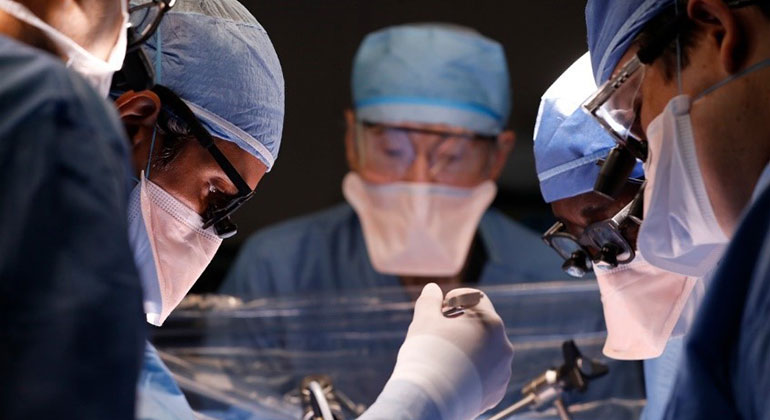
Ismail El-Hamamsy, MD, PhD, Named President of the Heart Valve Society
Feb 22, 2024 View All Press Releases
